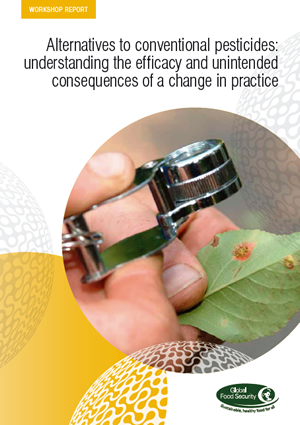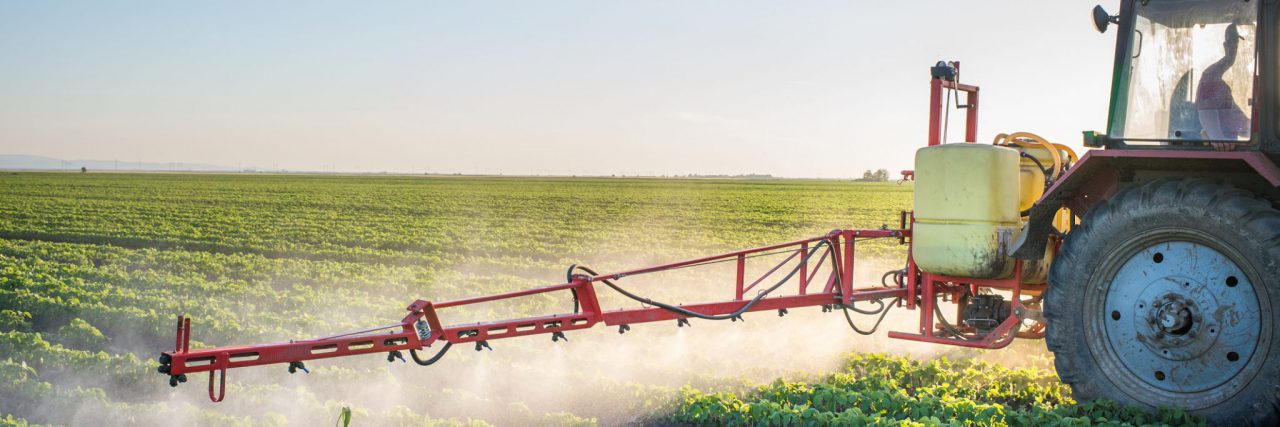The Global Food Security (GFS) programme has published a new workshop report that highlights the risks and challenges of using alternatives to conventional pesticides in the food system.
The report, based on findings from a GFS workshop and attended by key stakeholders from academia, industry, policy and NGOs, further identifies potential unintended consequences of a change in practice on local and global markets.
Pesticides provide numerous benefits – they reduce food losses, reduce labour costs, limit pest damage and control pest populations, reduce weed numbers, and control diseases, all of which could lead to unnecessary waste. However, there are many pressures on the use of pesticides, including regulatory restrictions, potential ecological and environmental damage, emergence of pesticide resistance in pests and weeds, and social pressures from consumers around potential contamination and food safety concerns. Biopesticides and Integrated Pest Management strategies (IPM) have been suggested as viable solutions to sustainably replace conventional pesticides. Biopesticides are pest management solutions based on living micro-organisms, which include microbials (bacteria, algae, protozoa viruses, fungi), pheromones and semiochemicals, macrobials (insects and nematodes), and plant extracts. IPM is a systems approach that combines different crop protection practices with monitoring of pests and their enemies, including biopesticides.
Participants at the workshop agreed that demonstrating how IPM works to the end-user, and providing a universal portfolio, could help demonstrate the potential of alternatives to conventional pesticides. A systems approach is also needed to understand how to optimise trade-offs, and to ensure a more resilient and sustainable food system.
Read the full report:

Alternatives to conventional pesticides: understanding the efficacy and unintended consequences of a change in practice
Pesticides provide numerous benefits, yet pressures on their use has led to industry exploring other viable options for pest, weed and disease management. This report examines the challenges of using alternatives to conventional pesticides, and highlights future research priorities for biopesticides and Integrated Pest Management strategies.
(You can view PDF documents by downloading a PDF reader. We recommend using Google Chrome or Mozilla Firefox web browsers.)
ENDS


